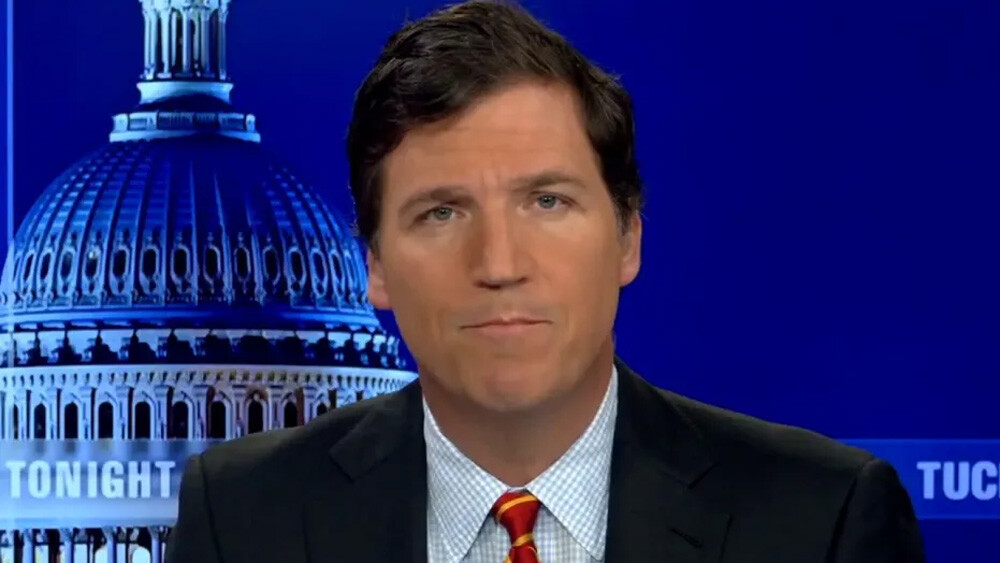4 Boomer Pop Culture Staples That Are Getting Weird

Everything changes with time. Artists change styles, sports teams change cities, and even Cracked began in the 1930s as a hardline Trotskyist pamphlet until the FBI shut us down. Sometimes things change for the better and sometimes for the worse, but the following have changed for the weird ...
Woodstock Keeps Trying And Failing To Still Be A Thing
Woodstock, the 1969 music festival at which some of you were conceived, is still well-remembered thanks to timeless performances from iconic artists like Quill, Country Joe and the Fish, and the Keef Hartley Band. In fact, the festival was such a hit that organizers keep trying to chase the high, despite clear signs from God that it's time to let go.
Don't Miss
Small-scale anniversary festivals in 1979 and '89 went off without a hitch, and while the larger Woodstock '94 turned into a muddy, messy, overcrowded mess, it still mostly worked. But Woodstock' 99—an attempt to recapture the size and countercultural spirit of the original—was a total disaster.

First, nature and capitalism conspired to ruin the venue itself. Temperatures hovered around 100 Freedoms/38 Commies, there was little shade and a lot of asphalt, and miles of walking was required. The insufficient number of port-a-potties rapidly overflowed. Lengthy lines culminated in overpriced food and drinks because nothing captured the spirit of the '60s better than charging MTV-addled teenagers the modern equivalent of $16.50 for a burrito. The lines for water fountains were even longer, and attendees skipped them by smashing water pipes.
Fans actually smashed a lot of things while looting ATMs and merchandise trailers. They also started bonfires that spread to vendor booths and an audio tower. The fire department showed up, and riot control followed. And if you put up with all that crap, your reward was the chance to hear bands like Korn, Limp Bizkit, and Kid Rock. The turn of the millennium was a dark time for music, kids. When Fred Durst said to break stuff, we broke stuff, dammit.
But the real problem of Woodstock '99 was the widespread sexual harassment and assault, which included four rape cases. A food vendor said his female colleagues were groped by customers, while state troopers were suspended for encouraging women to pose naked. While the festival produced 44 arrests, the only sexual assault charge was made against a prison guard, who got six years for forcing a 15-year-old to perform oral sex. His lawyer argued that he was drunk and "the girl should not have presented the opportunity either." So, there weren't a lot of Woodstock's supposed peaceful hippie vibes.

Sanity returned for a smaller 40th-anniversary festival, although its appeal was limited to fans who wanted to see an aging Big Brother and the Holding Company. 2019's 50th-anniversary concert, however, didn't even get off the ground. It was supposed to be a return to greatness, with 150,000 fans enjoying performances from Jay-Z, Chance the Rapper, the Killers, and other acts from this millennium. But delays and financial problems emerged, ticket sales kept getting delayed, and sponsors and performers eventually started fleeing.
A nasty legal battle between Woodstock co-creator Michael Lang and the festival's PR agency ensued, all while Lang kept trying to secure smaller and sadder venues. Eventually, they ran out of time and killed the event, although not before paying most of the artists millions up front. But hey, the original Woodstock almost bankrupted its promoters too, so at least they were able to celebrate one part of their legacy.
The Wall Street Journal's Readership Is Dying Off
The Wall Street Journal, your number one source for learning why homeless people freezing to death is good for the economy, is a rarity among modern media in that its readers are actually willing to pay for its continued existence. But those same readers are dying off because when one of your biggest claims to fame is being the paper that the nonagenarian Rupert Murdoch starts his day with, then your clientele is largely made of people who still have strong opinions on the Crimean War.

A leaked internal report revealed that the paper was losing subscribers to the grim march of time while failing to attract new readers because while the WSJ made a killing by charging for an online subscription all the way back in 1996, it's since struggled to adjust to the modern internet. Online news is often held in reserve until the print edition is released, leading readers to click elsewhere for big stories. Reporters believe that improved coverage of social issues—like income inequality and drug abuse—could bring in new subscribers, but editors allegedly don't want to touch the subjects. (Unless they're denying them, as the WSJ has a long history of hosting op-eds that dispute everything from climate change to the dangers of asbestos and second-hand smoke.)
There's nothing inherently wrong with focusing on business, but if your only clientele is rich old guys who want to read about the nuances of IPOs, then you're not going to survive as a major institution. But instead of adapting, the WSJ appears to be at war with itself; before the 2020 election, the paper's opinion section ran a piece supporting an anti-Biden conspiracy, only for the news section to debunk it hours later. Attempts to diversify reporters and their coverage have stalled, with the editor-in-chief at one point killing a story about college fraternities for containing "jargon-y woke-isms."

The paper also faces other, more insider-y problems, but the point is that phrases like "stem the bleeding" are getting thrown around, and no one seems to agree on how to do it. The WSJ is hoping to grow their 2.5 million digital subscribers into 5.5, but that report warned it would take 22 years unless changes are made. Meanwhile, its parent company is shrinking and pushing for fast results. So, if your grandpa tells you that the Wall Street Journal laid off all his favorite writers, you heard it here first. Because the WSJ apparently won't tell anyone on the internet until Rupert Murdoch has the chance to read about it over breakfast.
Kiss Could Live Forever
Kiss is in the middle of a farewell tour that began in 2019 and won't finish until 2022, thanks to COVID and the kind of personal health issues that come from being a 69-year-old who's been in Kiss for almost 50 years. Unlike their previous farewell tour, this one appears to be the for realsies end of the line for Gene Simmons and Paul Stanley, but that doesn't mean Kiss will die. Simmons and Stanley have both suggested passing the band off to a new generation of, uh, Kissers, while a consultant who used to work with them also predicted that Kiss will outlive us all.

That makes sense for a brand that's always been open about trying to rake in as much money as humanly possible, selling everything from table lamps, shower curtains, and deodorant, to the Kiss Visa card, for when you want to embarrass your children at every single Olive Garden outing. But while other bands have replaced members and tribute acts with names like Elvis Parsley and Zed Lepplin have been a mediocre thing forever, that consultant envisioned the musical equivalent of "Mickey Mouse and Batman," a product that evolves with the times to cater to each generation of tacky, undiscerning music fans.
In a weird way, that could almost be a return to tradition—it's not like everyone stopped playing Chopin's piano music the moment he died, and who was Chopin if not the Gene Simmons of 19th-century Poland? But it also feels like ominous foreshadowing, the latest effort to transform pop culture staples into shambling zombies that exist for the sake of continuing to exist. Either way, it's weird to imagine our great-grandchildren painting their faces and heading off to watch a cyborg play "Rock and Roll All Nite" at Neo Madison Square Garden.
If You're Old Enough, You Might Remember When Tucker Carlson Wasn't Crazy
If you've wondered how conservative news networks went from "We should cut taxes" to "Your taxes are being used to give illegal immigrants free abortions so they can get right back to teaching ultra-communism in your children's classrooms," you could learn a lot by studying the career of Tucker Carlson.

Fox News
Carlson is busily melting grandma brains with vaccine skepticism, suggestions that the FBI organized the attack on the Capitol as an excuse to crack down on hardworking everyday white supremacists, and warnings that white Americans are perpetually on the verge of being replaced by conniving immigrants. That's just the tip of his dumb iceberg, but his tone is as infamous as his ideas; this is a man who goes on TV night after night to suggest that America is dying and that anyone who disagrees can go screw themselves.
You can tell he's just shouting whatever crap gets him the most attention; he was one of the few high-profile conservative pundits to issue warnings about COVID until downplaying it became more effective. Just look at this nonsense he spewed in a 2009 speech at CPAC: "The that failed refused to put accuracy first. This is the hard truth that conservatives need to deal with. If you create a news organization whose primary objective is not to deliver accurate news, you will fail. The New York Times is a liberal paper … but it's a paper that cares about accuracy. Conservatives need to build institutions that mirror those institutions."
The audience booed him.
To be fair to them, he was wrong: Inaccurate news organizations later thrived.
You see, kids, once upon a time, Tucker Carlson wrote award-winning features for publications that employed wild ideas like "fact-checking" and "acknowledging that we all share reality." Don't get us wrong—he was always kind of a fratty little douche. He celebrated Harvey Milk's murderer, bragged about attacking a gay man, and dismissed Iraq as a country of "semiliterate primitive monkeys," among other incidents that would, in a sane world, disqualify him from holding a high-profile media job. But even though he was more gossip hound than Bob Woodward, when he managed to suppress the yearning Fox News host inside himself, he could manage to come across like a human being instead of a robot built by the blood pressure medication industry to manipulate the elderly.
And he meant it when he said that conservatives need an accurate news organization. When Carlson co-founded The Daily Caller in 2010, it was an attempt to create a home for serious, in-depth conservative journalism. A donor said it was "a huge opportunity to re-introduce civility to our political discourse."

It flopped. No one read it. It turned out that most conservatives don't want conservative journalism; they want outrage. And boobs, apparently, as The Daily Caller soon pivoted to articles highlighting "Syria-sly hot" refugees amid a new tone of screaming nonsense. They embraced anger, stunts, conspiracy theories, and flat-out lies, and then The Daily Caller, Carlson, and most of the conservative media landscape never looked back.
You'd have hoped that Carlson would realize that a lack of interest in his serious ideas was an indication that his ideas were never serious to begin with. Instead, he walked away with the lesson that credibility is for suckers. Now he makes 10 million bucks a year by inventing raging nonsense that encourages his viewers to send actual journalists death threats. He exists to keep people glued to Fox News' misanthropic worldview, and the whole country is worse off for it. Man, if only we could all unwind a little at a new Woodstock concert.
Mark is on Twitter and wrote a book.
Top image: Nashville69/Wiki Commons
